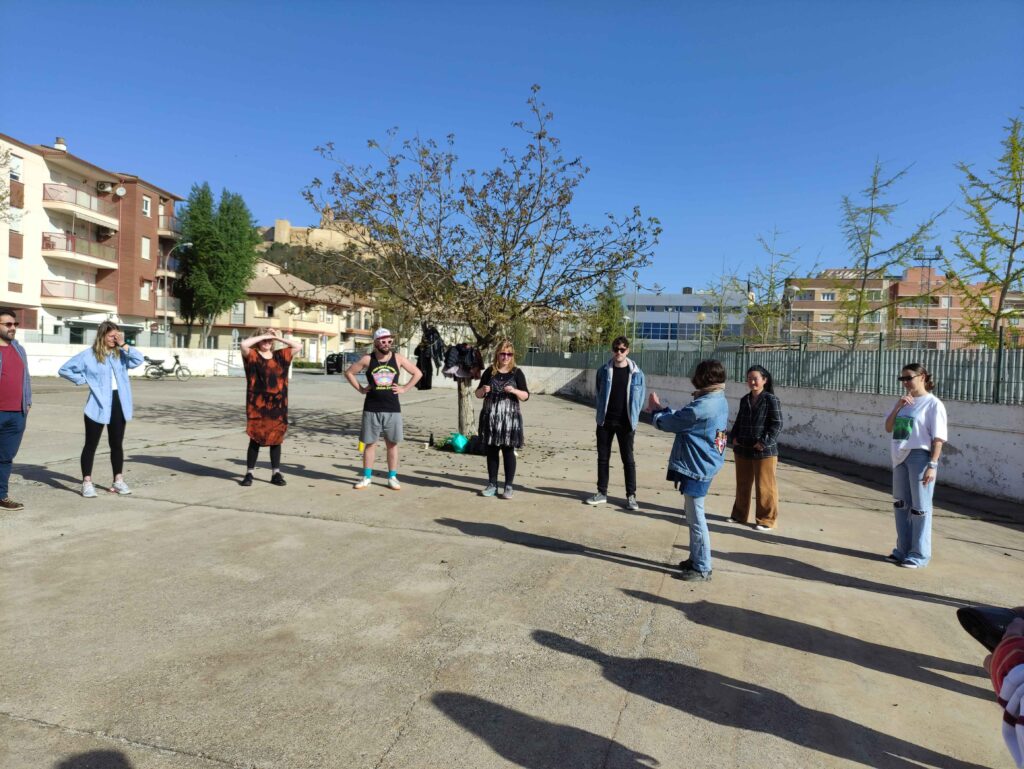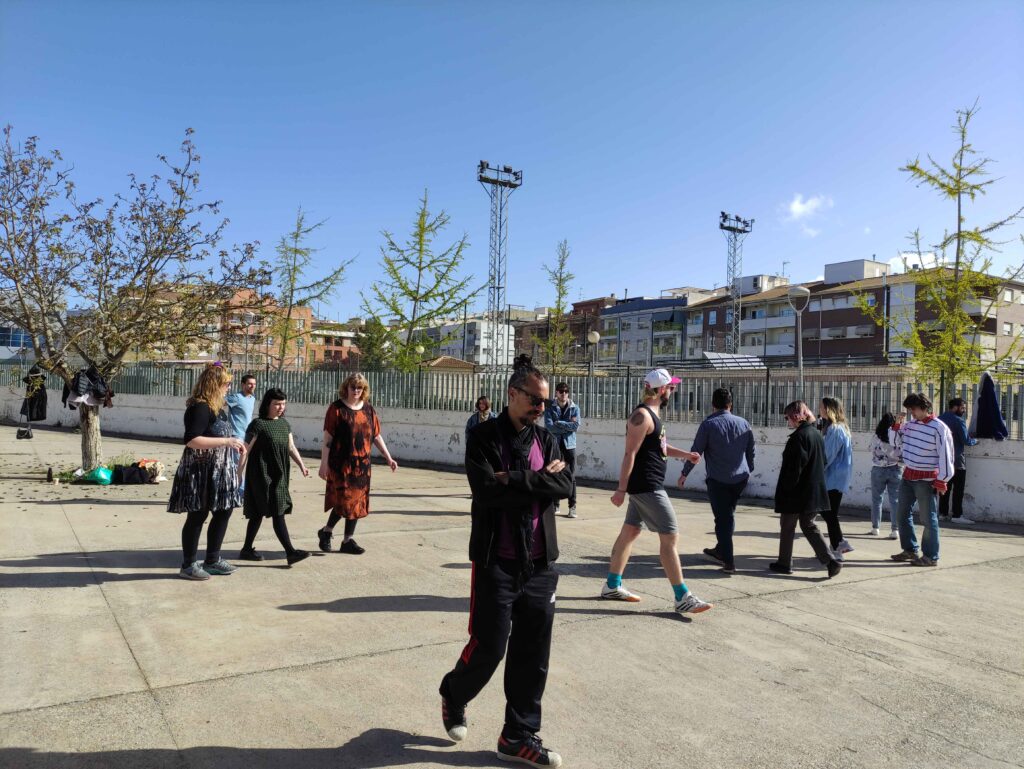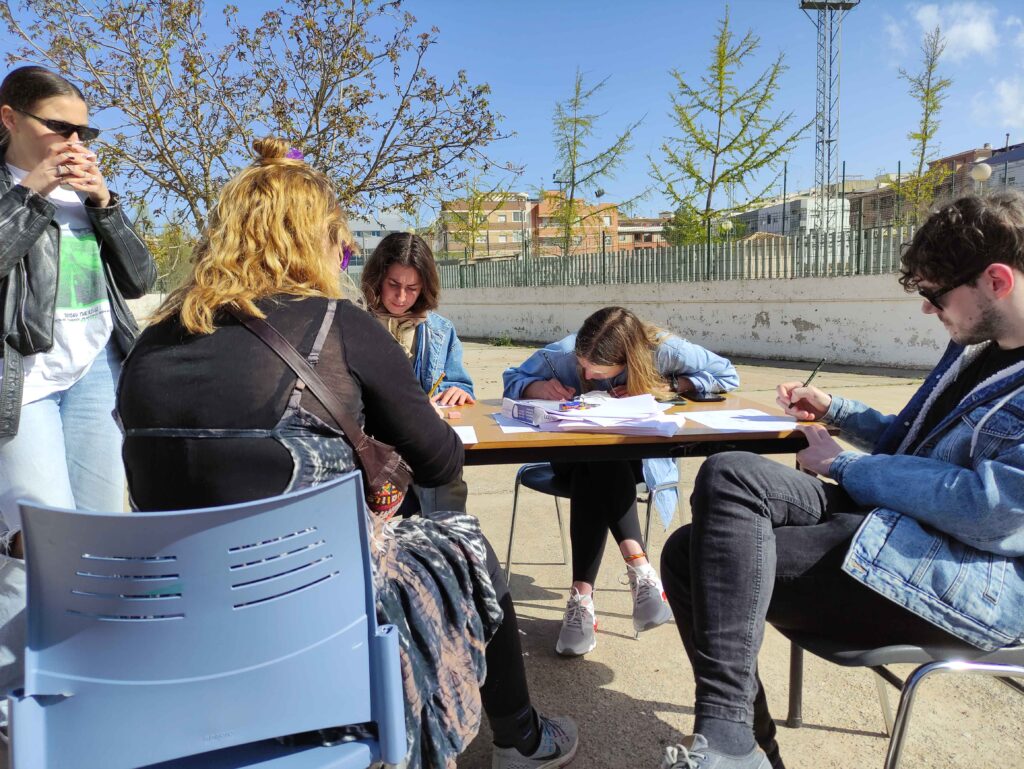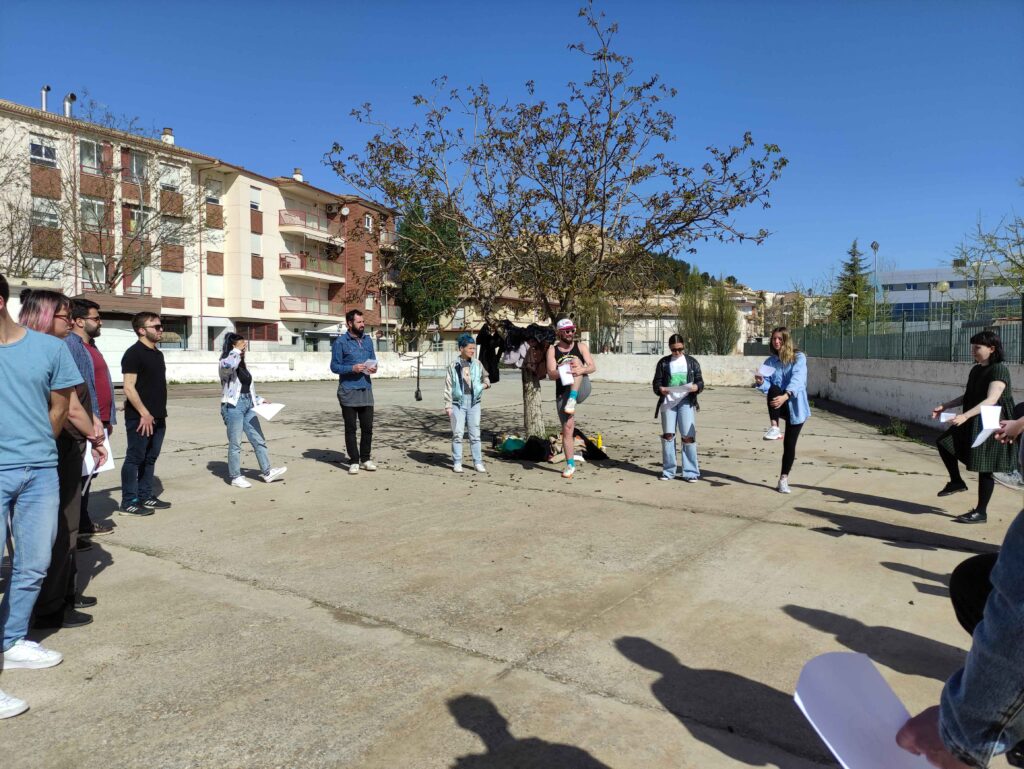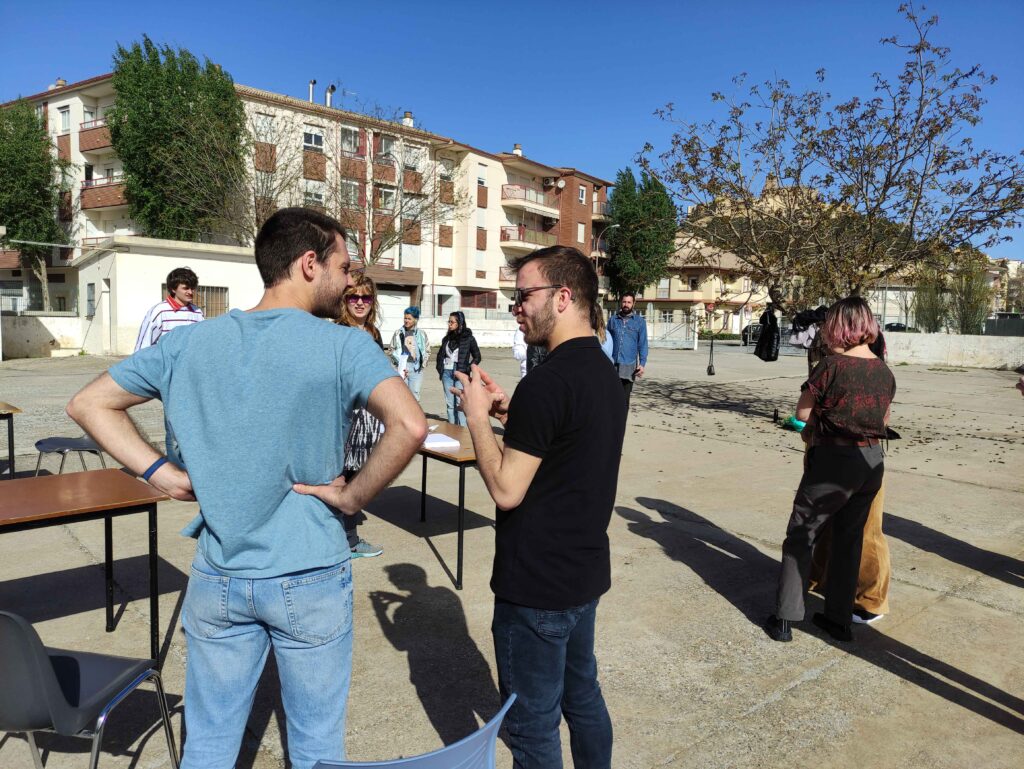Themes
- Expression
- General human rights
- Injustice
Objectives
The workshop will explore creative writing as a tool for activism towards societal change. With activities from Improvisational theatre and writing exercises, participants will write brief short stories that can reflect on social issues, both that exist in their local communities and all across the participating countries. The workshop will focus on peer-to-peer learning. Where the trainer’s main task is to maintain structure and create a safe and creative environment where participants can feel free to speak their mind and explore different ways of expressing their art.
- To initiate a dialogue among the participants where they can reflect on societal issues, both from their local communities and from other participating countries.
- To explore the tool of creative writing in activism.
- To create the final product: a brief short story(20-100 words) that can be used in a shared publication, in video production, on social media, or in an exhibition.
Materials
- A4 drawing papers
- Pencils
- Sticky notes
- Pens
- Pencil sharpener
- Erasers
- Rulers
- Scissors
- The first half of the workshop could be performed outside.
- A room with chairs and tables for every participant in the workshop
- A big space for group exercises.
Duration
- 15 min : Warmup
- 15 min : Establishing a theme
- 15 min : Break
- 35 min : Writing
- 15 min : Break
- 20 min : Shared reading
Recommended Method
1)Breaking the ice: The goal is to get the group in sync. Participants will get to know each other through improv activities where the aim is that the participants share experiences from their local community, their interests/passion and their point of view.
Implementation
a) Stretch and share (micro): The trainer introduces the activity: Participants stand in a circle, the group focuses on one person at a time. The person in focus introduces themselves and shares something from their week and explains how that made them feel, meanwhile performing a stretch with their body. The group copies the stretch. Next person in line invents a new stretch which the group copies and shares something from their week.
b)Zip zap boing: The trainer introduces the activity: Participants are still in a circle. The play is passed around the circle, to the next person, with three ways.
1) Zip: by clapping the hands with the index fingers pointing to the next person in line.
2) Zap: by clapping the hands with the index fingers pointing to anyone else then the participants next to you.
3) Boing: star-jump and with the hands raised in front of you. It passes a zip or a zap back the way it came. Now run the game.
c) Stretch and share (evaluation): The trainer introduces the activity:
1)Participants now do the same exercise as in the beginning, with the same stretches and the same focus. However, participants are now supposed to share something from their local community which they consider as injustice and explain how that makes them feel.
2)Establishing a theme: The trainer informs the group that in this exercise, participants will discuss different social issues and in a group decide if they want to establish “main topic” or a theme for the brief short stories.
a)“Speed dating:’’ The group is split up in two parallel rows which face each other: row a and b where one person in a faces one person in b and they make a “pair“. The trainer explains: Each pair has 30 sec to find a common social issue in both their local community. The clock rings after 30 sec and then all in row a move to the next person in row b.
b)Introduction of the Brief short story: The trainer explains that brief short stories contain around 20-100 words. Brief short stories are a rather liberal literary form where the author is allowed to experiment, mixing trends and currents; the authors can do whatever they want.
The brief short story has been especially popular in Latin America where autors have experimented and often express a humoristic undertone. The stories can be varied, they can contain conversations, descriptions, thought or capture still life. The brief short stories are inspired from all possible literary forms and genres, where sometimes the reader does not always understand the story after first reading.
c) Group chat: The group reflects on the outcome and discussions if they want to establish a common theme. The theme can f.ex. be a specific societal issue, such as domestic violence or unemployment – or a special writing theme, such as: conversations, descriptions, thought or sill life.
3)Writing: The goal for each participant is to write at least one brief short story. The group is divided into groups of two which will be writing-buddies throughout the session.
a)Where? What? Who?: Participants get 5 minutes to decide on where their short story takes place, which social issue is in focus and who it concerns. After 5 minutes they share their decision with their writing-buddy.
b)Writing (2 x 10 min session): The trainer explains that there will be a ten minute timer where participants have to write constantly for 10 minutes. Then they get 5 minutes to reflect. Then again 10 minutes without stopping. Then again 5 minutes to reflect and edit their brief short story.
4)Shared reading: One at a time, participants will stand in front of the group and read their story out loud.
Debriefing and Evaluating
1.It is vital to evaluate by reflecting on the emotions of participants, because the participants emotions are the main driving force of the workshop. Therefore the trainers should ask questions like:
a.Why does this social issue draw our attention?
b.How does that make you feel?
c.Do you feel this approach applies to multinational groups?
d.Is it difficult to share that feeling in a group?
2.Debriefing the activity takes place in the group chat, with discussions points like these:
a.Why do we need to react to these social issues?
b.Is that important in your daily life?
c.Why?
d.How about the life of others?
e.Why?
